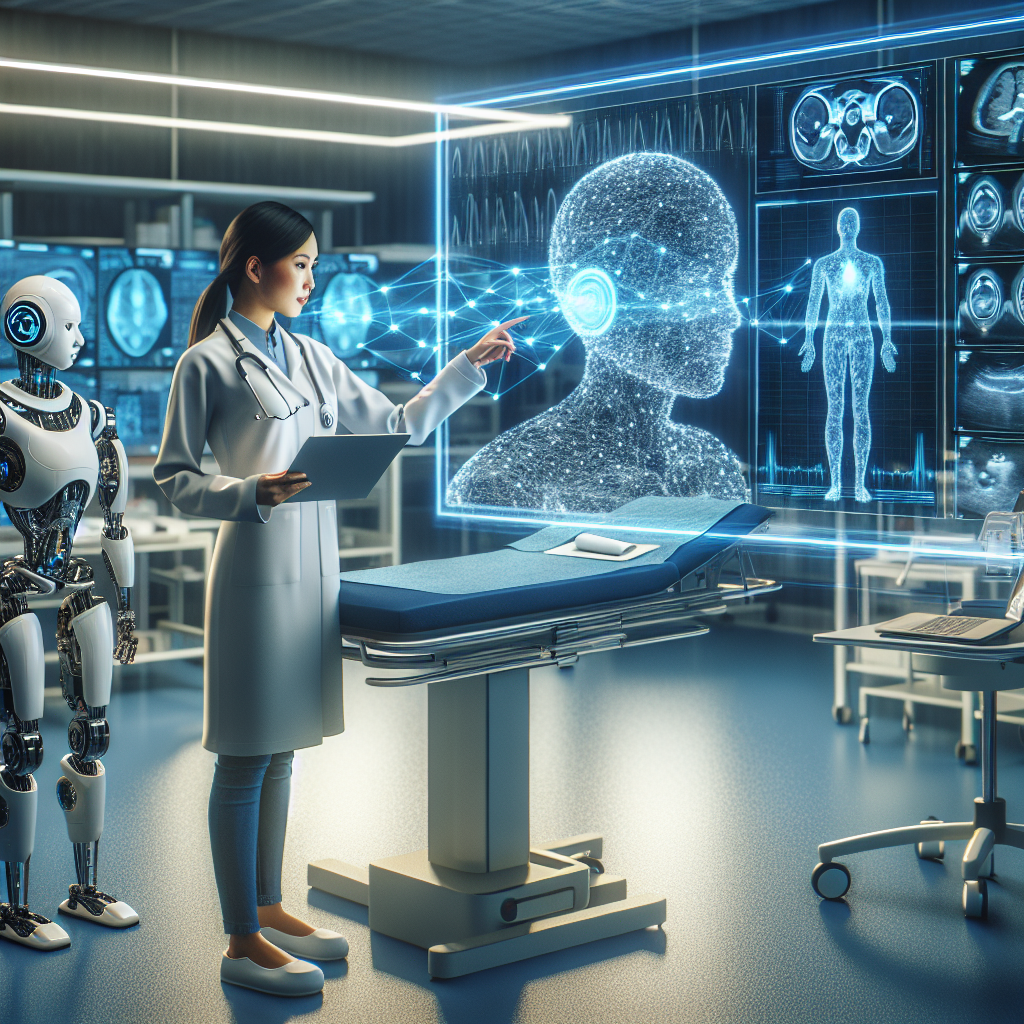Artificial Intelligence (AI) is transforming various industries, with healthcare standing out as a field that greatly benefits from these innovations. By improving diagnostic accuracy and patient care, AI technologies are reshaping how medical practices operate. This article explores the diverse effects of AI in healthcare, concentrating on diagnostics and patient care.
1. AI in Diagnostics
a. Speeding Up Disease Detection
AI algorithms, especially those based on machine learning, can sift through extensive datasets much faster than human clinicians. In the realm of diagnostics, AI systems excel at analyzing medical images—such as X-rays, MRIs, and CT scans—pinpointing abnormalities with exceptional accuracy. For example, Google’s DeepMind has created an AI capable of identifying breast cancer in mammograms with more precision than human radiologists. Such advancements not only shorten the time required for a diagnosis but also reduce the possibility of human errors.
b. Forecasting Health Risks
The predictive skills of AI are vital in spotting potential health issues beforehand. By examining patient histories, genetic markers, and behavioral trends, AI can predict the chances of conditions like diabetes, heart disease, or specific cancers. This enables healthcare providers to initiate preventive strategies customized for each patient, ultimately improving health outcomes.
c. Customizing Treatments
AI plays a crucial role in personalized medicine, which focuses on tailoring treatments to each patient’s specific characteristics. By evaluating genomic data and other biomarkers, AI systems can aid in identifying the most effective treatment pathways, anticipating responses, and predicting side effects. This tailored approach promotes more successful treatment plans, leading to improved patient results.
2. Improving Patient Care
a. AI-Driven Health Assistants
AI-powered virtual health assistants are becoming a common resource, providing patients with immediate support. Through chatbots and mobile applications, these digital helpers can deliver personalized health advice, medication reminders, appointment scheduling, and even mental health assistance. This round-the-clock availability enhances patient involvement and adherence to treatment regimens.
b. Remote Patient Monitoring
AI technologies are essential for remote monitoring of patients. Wearable devices and health applications gather ongoing health data, which AI systems analyze to provide insights into a patient’s condition. These tools allow healthcare providers to manage chronic diseases, identify early warning signs, and modify treatment plans when necessary, all without requiring the patient to visit a healthcare facility.
c. Improving Clinical Decision-Making
AI bolsters clinical decision-making by equipping healthcare providers with data-driven insights derived from extensive analyses. Using clinical decision support systems (CDSS), clinicians receive evidence-based suggestions that can influence treatment decisions. This collaborative method ensures that patients benefit from timely and effective care.
3. Challenges and Ethical Issues
Despite the considerable potential of AI in the healthcare sector, it faces notable challenges and ethical dilemmas. Issues regarding data privacy, algorithmic bias, and the necessity for regulatory frameworks must be addressed. Furthermore, healthcare professionals need significant training to effectively integrate AI tools into clinical practice.
Conclusion
The impact of AI on improving diagnostics and patient care is both significant and transformative. From enhancing disease detection and enabling personalized medicine to increasing patient engagement and supporting decision-making, AI is reshaping the patient experience and establishing new benchmarks in medical practice. As technology progresses, it is essential for healthcare stakeholders to prioritize ethical considerations and ensure these advancements enhance health outcomes for everyone. The potential of AI is immense, and its successful implementation could lead to a healthier future for individuals worldwide.

